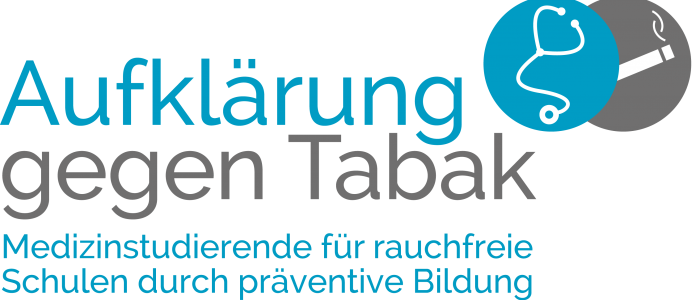Prevention of tobacco at the Charité Berlin
Milestones in the prevention of tobacco at the Charité Berlin: Letters from local supporters and new website
Since this morning (07.04.2015), Charité has set up its own website for the medical students of the Education against Tobacco group in Charité Berlin, as the only student’s working group at the Charité, which is currently being updated. The new local supporters have also been officially nominated. (Further information is available below).
We would like to use this opportunity to summarize the local successes and the development in a timeline:
Timeline for Education against Tobacco project at the Charité Berlin
- 20.2013: Tharusan Thevathasanlaunches the eighteenth Education against Tobacco local group in the federal republic at the Charité Berlin after his orientation and can soon get fellow students for participation.
- 05.2014: The first school visit according to the standardized AGT concept and henceforth increasing number of school children,
- 06.2015: Titus Brinker sends to Tharusan Thevathasanthe elaborate scientific documents compiled jointly with Professor Tobias Raupach for the elective subject at the Charité, to support local implementation.
- 26.2015: Avija Mitelmanfounds AGT in the department of Psychology at the Humboldt University in Berlin, after learning about the program at AGT Frankfurt under the leadership of Nadine Farivar.
SS 2015: As the seventh University in Germany, the Charité introduces the elective ‘Education against Tobacco‘. The learning objectives defined by Raupach and Brinker are fully accepted and implemented. An elective module is offered as a special feature not only in the medicine department of the Charité, but also in the psychology department of Humboldt University.
- 04.2015: Under takpraevention.charite.de, Charité provides a website to the Berlin group of Education against Tobacco, which is currently being updated. At Charité, as at other locations, local supporters from the departments of Pulmonology, Cardiology and Emergency Medicine are officially appointed and deliver a statement (our scientific advisory board, which does the scientific evaluation of projects can be foundhere); local supporters in Berlin are:
Prof. Dr. med. Robert Loddenkemper
Past president of the German Society for Pulmonology and the European Respiratory Society
Present Medical Director of the HELIOS Clinic, Emil von Behring
Smoking tobacco is the biggest avoidable cause of diseases and premature deaths in Germany. Children and the youth are often only inadequately aware of the dangers of tobacco consumption. Therefore, the early education against tobacco for schoolchildren regarding the effects of tobacco consumption on health (including E-Cigarettes and E-Shishas) has a great significance in the possible prevention of the increase in nicotine addiction (primary prevention). This prevention program for students seems especially advantageous, as it is carried out by medical students, who themselves belonged to the same adolescent age group a short time ago, and moreover, can acquire the necessary professional medical knowledge.
Prof. Dr. med. Ulf Landmesser
Director of the Cardiology Clinic , Charité – University of Medicine, Berlin, Campus Benjamin Franklin
Deputy Editor of the European Heart Journal, Oxford University Press
The working group for tobacco prevention was initiated by the students of Charité, to impart early awareness in schools about the health hazards of tobacco consumption – and to vitally improve the situation in primary prevention. This is an excellent initiative, which targets very early prevention, which is being carried out with great commitment – I would like to extend my unceasing support to this.
Univ.-Prof. Dr. med. Martin Möckel, FESC, FAHA
Head of Emergency Medicine / Emergency Services / Chest Pain Units, Charité University of Medicine, Berlin, Campus Virchow-Clinic and Center
Diseases of the cardiovascular system are the most frequent cause of death in Germany. Therefore, smoking is considered to be a major risk factor. Against this background, I welcome our students working group for Tobacco prevention (Editor: as a part of the federal network Education against tobacco), which provides early education to schoolchildren about the effects of smoking. This program has my wholehearted support.

